WHAT IS CROHN'S DISEASE?
Crohn's disease (CD) is one type of inflammatory bowel disease (IBD), It usually affects the small intestine and the colon and other parts of the body.
SIGNS AND SYMPTOMS FOR CROHN'S DISEASE

Why does Crohn’s disease occur?
CD occurs when the immune system makes an error. Generally, it attacks germs or foreign materials in the body, e.g., if the body gets infected, the immune system will attack the germs that have caused the infection and cause fever as a response. But in CD, the immune system thinks that food, beneficial gut bacteria, and the cells present in the bowel (intestines) are the intruders. The cells of the immune system that generally protect the colon attack it instead, causing swelling in the large intestine.

Who is at a higher risk of getting Crohn's disease?

CD can occur at any age; however, it begins usually before 30 years of age

People with a family history of CD may likely develop the condition

Smoking may lead to more severe disease

Certain medications may make CD worse
SPOT THE SYMPTOMS
What are the typical symptoms?
Symptoms of CD can differ based on the severity of swelling in the intestine and where it occurs. Signs and symptoms may include:

Diarrhea

Abdominal pain and cramping
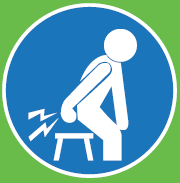
Rectal pain

Passing small amount of blood with stool

Unexplained weight loss
SYMPTOMS OF CD THAT ARE UNIQUE TO CHILDREN INCLUDE
What are the typical symptoms?
Symptoms of CD can differ based on the severity of swelling in the intestine and where it occurs. Signs and symptoms may include:
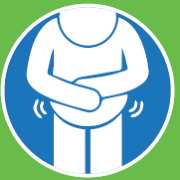
Cramping and abdominal pain

Regular episodes of watery diarrhea
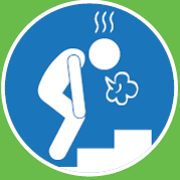
Fatigue
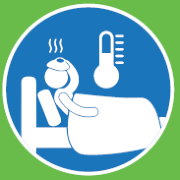
Fever
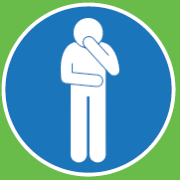
Nausea
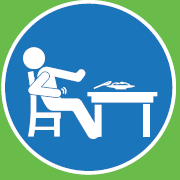
Loss of appetite which can affect growth
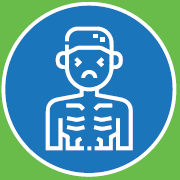
Malnutrition due to a low calorie intake
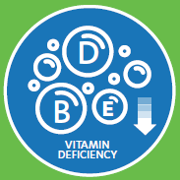
Nutritional deficiencies due to malabsorption
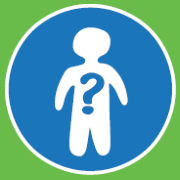
Delayed puberty in some cases
Let's understand a few terms associated with CD
• Acute (illness):
An illness that begins suddenly, is often severe in intensity and generally lasts for a short time
• Incontinence:
Accidental passing or leakage of stools and/or urine
• Inflammation:
How the body responds to irritation, infection, or another injury causing reddening, swelling, and pain
WHAT IF CROHN’S DISEASE IS NOT TREATED ON TIME?
Letting CD go untreated allows the condition to advance, leading to severe symptoms and complications that may require surgery.
Complications may include :
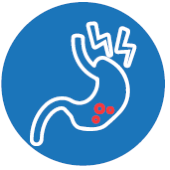
Ulcers
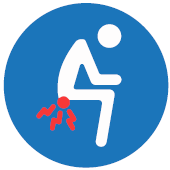
Fistulas

Bowel obstruction
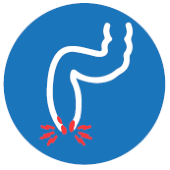
Anal fissure
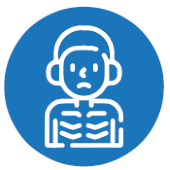
Malnutrition (common in children)
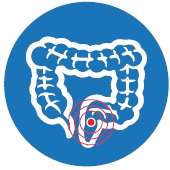
Colon cancer
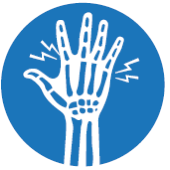
Other health issues like skin disorders, osteoporosis, arthritis, and gallbladder or liver disease
Remember, a timely visit to the doctor and initiation of treatment in time
can help prevent these complications!
HOW IS CROHN'S DISEASE MANAGED?
One should consult a doctor if they feel their bowel habits are changing often, or if they experience any of the following signs and symptoms of CD, such as:
- Blood in stool
- Diarrhoea for more than seven days
- Recurrent stomach aches or cramps
- Unexplained weight loss
- Slow growth (in children)
What should one know regarding the diagnosis of CD?
Crohn's disease can occasionally be hard to diagnose as the symptoms may overlap/mimic other conditions. To arrive at the diagnosis, a doctor may ask about:
- Symptoms one is experiencing
- Their daily diet
- Medical history (whether one has had a recent infection, any stomach issues in the past)
- Medicines one is taking
- If someone in the family has, or had CD
Doctors may also perform the following:


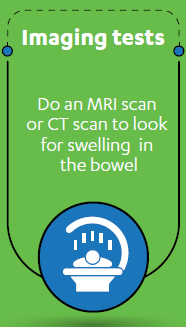
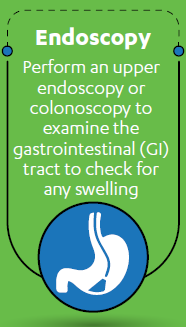


If the family doctor feels a person has Crohn's disease, he/she will refer the patient to a Gastroenterologist, who is a specialist in treating gastrointestinal diseases.
GOALS OF CROHN'S DISEASE TREATMENT:
Treatment of CD aims to:

What does the treatment include?
A doctor is a right person to choose the appropriate treatment for a patient. Here are a few treatment approaches.

Lifestyle changes
Healthy and correct eating habits, exercise, and good sleep may be beneficial

Oral and injected Medications
May help relieve pain, prevent or slow down damage, reduce severity and induce remission

Surgery
Based on the disease severity, a doctor may recommend surgery to reduce pain and help prevent further damage




